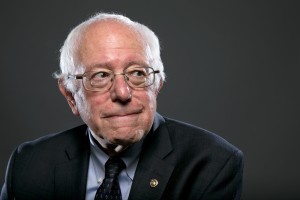
Bernie Sanders’ insurgent presidential campaign has now started to take on the look of a more traditional presidential operation focused not only on generating crowds and raising the senator’s profile, but also charting a course to victory and the democratic nomination and strategically building state-by-state ground operations outside of the first in the nation Iowa caucuses and New Hampshire primary. Central to Sanders’ strategy is increasing his support among traditional voting blocs that make up the Democratic Party base, namely Latinos.
Arturo Carmona, the campaign’s new director of Latino outreach and southwest regional political director and formerly the executive director of the Los Angeles-based Latino advocacy group presente.org, said that “the effort will go bottom up with state and regional programs recruiting volunteer leaders and tapping into the power of social media to spread the word.”
With some 70% of Latino voters unfamiliar with Sanders, there exists an opportunity to make inroads in the community that was hit hardest by the recession. According to some estimates, the Latino population’s total net worth in the United States fell some 66% after the financial crisis. Sanders’ agenda of combating income inequality and making public universities tuition-free, to name a few, are proposals that Arturo and many Hispanics believe speak to the heart of what the Latino community cares about going into the 2016 election.
So far the work seems to be paying off. Sanders’ campaign racked up a huge victory in the last fundraising quarter as it was recently reported that the socialist Vermont senator’s operation had racked in a hefty $24 million- just $4 million shy of democratic front-runner Hillary Clinton’s $28 million in the same fundraising period.
“I saw a historic opportunity to really elevate a particular progressive agenda that can advance the interests of Latino and working-class families from across the country,” says Carmona. “So when the campaign reached out to me, I really thought about it and accepted it because I thought it could advance and propel the work that I was doing at presente.org, but at a much larger scale.”
[Mic.com]

Recent Comments